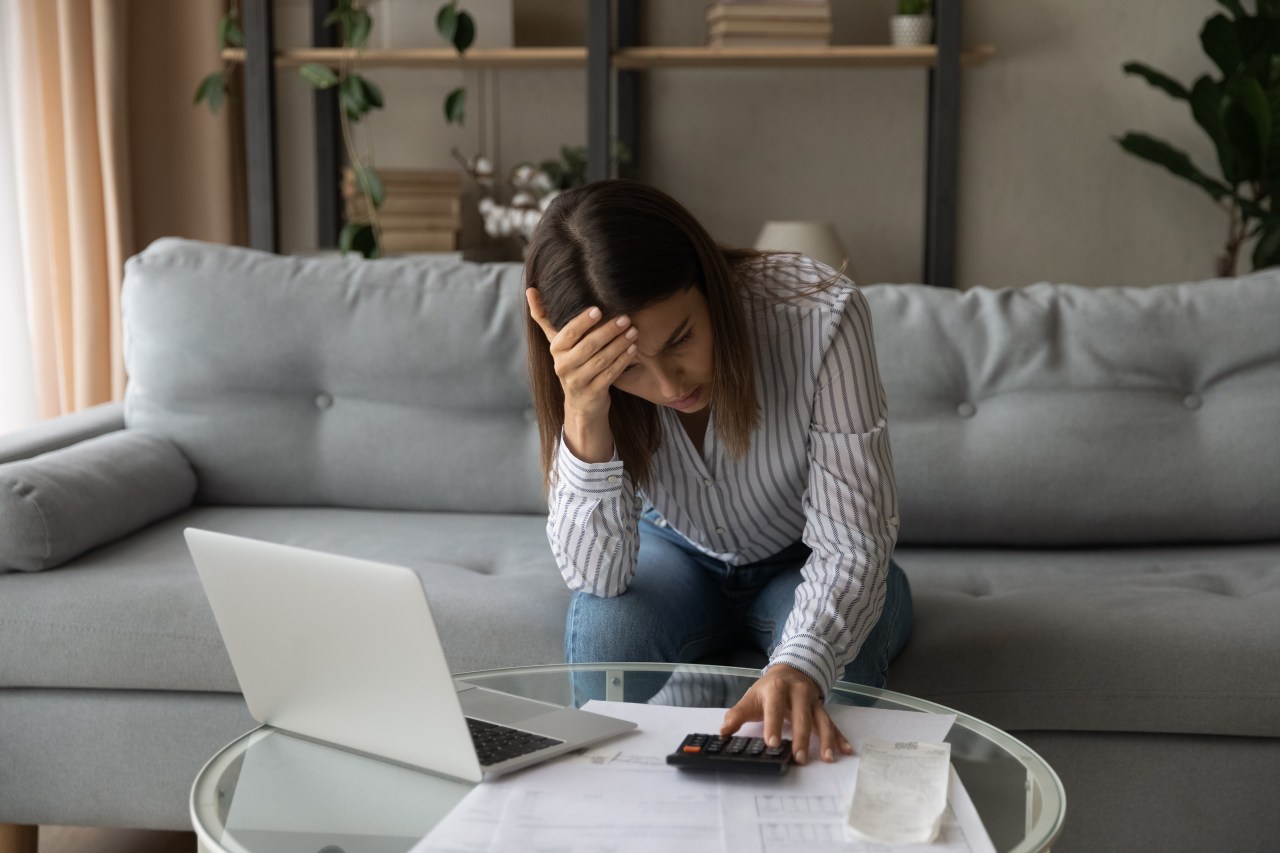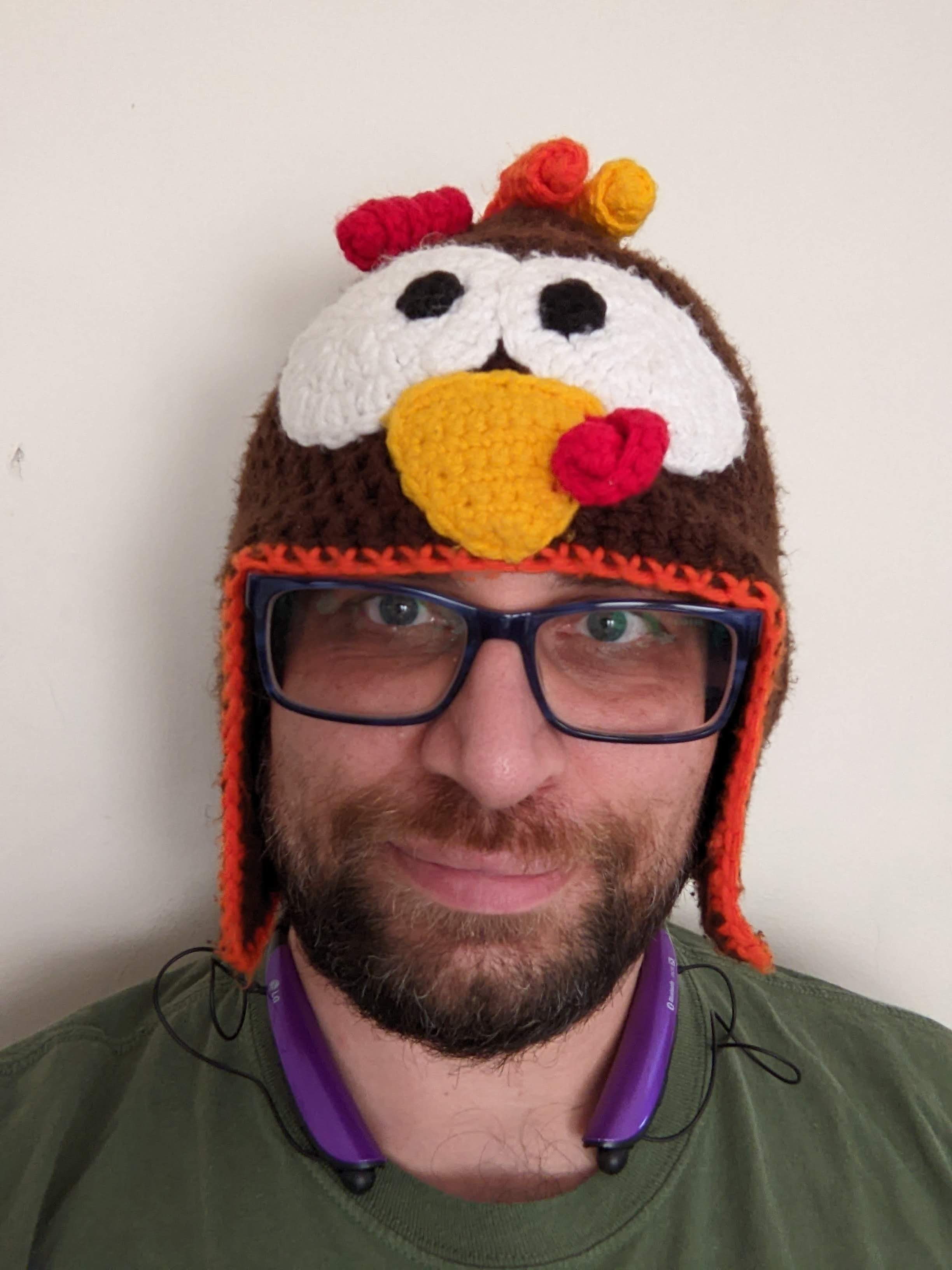This article is terrible. First off, where do they get 60% from?
They link to the wrong research. The research they link to is a survey of people who already have anxiety. If you look at the research of the actual survey of the whole sample, not just those with anxiety, (here), it says that 42% have a diagnosed mental health condition, which includes an anxiety disorder amongst other disorders like depression, ADHD, and so on.
90% of the diagnosed conditions (90% of 42%) is anxiety, which would mean the actual number for only anxiety would be 37.8%.
78% of those 42% (32.76%) have depression as well. So a lot of those people with anxiety also have depression.
So the actual title should be 38% of Gen Z have an anxiety disorder. Which is only a bit higher than the total population.
According to large population-based surveys, up to 33.7% of the population are affected by an anxiety disorder during their lifetime. https://www.ncbi.nlm.nih.gov/pmc/articles/PMC4610617/
Whilst everything else of your post is on point, the last bit is not really applicable: you can’t really compare “lifetime” probability (i.e. for the age range 0 - life-expectancy) of getting something (i.e. “be affected by”) with the probability of actually having something (i.e. not just be affected by it at any one point but rather being now suffering the effects from it) whilst being in a specific age range (roughly 10 - 30, a subset of the lifetime one).
It might be possible to derive the second one from the first if knowing the statistic distribution in relation to age of that disorder and the average duration of the condition, but as it stands there those 38% aren’t comparable to those 33.7% as they’re statistically quite different things.
That’s not how mental health stuff works. People do not really develop anxiety in adulthood like that. You won’t wake up one day and have suddenly developed a mental health disorder. Mental health disorders require both genetic predisposition and real-life experiences, but those experiences really only affect someone in that way before their brain is fully developed.
deleted by creator
That’s true. From the same study that gave the 33.7% lifetime prevalence, they have 21.3% annual prevalence (those who experienced the disorder in the 12 months before the survey.)
There was no point prevalence (right now) on the study. So maybe it would be lower?
But the study from the article with the 38% figure provides no peer reviewed research. They are a data management firm that conducted a survey.
The other stats come from actual research with stringent methodologies with a much larger sample (9000 compared to 1000 for the data firm).
I think the point is unless they had done the same survey at a population level to compare the numbers between Gen Z and the whole population, there’s no way of knowing if 38% is high or not. Never mind that the article posted here says 60%, which is completely wrong.
Let’s also not pretend that older generations arent likely wildly under diagnosed because of stigma and lack of any resources. That means Gen Z may just have a totally normal amount of anxiety.
I do have to wonder how these figures compare to older generations and to what extent underreporting due to stigmas around mental health could be corrected for between generations.
(I hope this already comes across, but I absolutely don’t mean to diminish the severity of the mental health problems faced by Gen Z or anyone else.)
Yeah, both my boomer parents 100% have anxiety with periods of uncontrollable panic attacks, but they refuse to acknowledge this is the case. There is definitely a stigma when talking about mental health for their generation.
I, for one, did not take your comment in a bad light. I’m in my late 40s, and most of my peers that I’m comfortable with have anxiety or some other mental health issue, myself included. I’m not sure what generation classification I fall into, but it really doesn’t matter; it’s not a generation specific problem. I guess I don’t really have a point here. Maybe that it’s a problem of the times rather than DOB. Or I’d guess 15% of people don’t report.
but I absolutely don’t mean to diminish the severity of the mental health problems faced by Gen Z
I, for one, do
Half of y’all are just saying you have mental issues because you’re in the “it’s not a phase, mom” tween phase.
Don’t get me wrong, 30% is still a staggering number, but 60% is just ridiculous. You’re fine. Chill tf out.
Article is bullshit anyway.
Their source doesn’t say 61% of Gen Z.
It only surveyed people who already have anxiety.
So it’s 61% of gen z with anxiety have a official anxiety diagnosis from a medical professional.
You know a substantial number of Zoomers are not teenagers and haven’t been for many years yeah?
I’m not sure why it has to be a controversial take that the first generation to grow up with unfettered internet access and subsequently the most awareness of any and every global crisis, has a disproportionately large number of people with anxiety disorders. It’s not like it’s all or nothing either, you can have mild-moderate anxiety and still have a diagnosable disorder
the first generation
How old exactly do you think millenials are?
Younger folks in there late 20s older ones early 40s?
Meaning that the older half of the generation didn’t have internet access at all hours of the day during their childhood since home computers were a rarity until the mid nineties and those were generally shared with the whole family. Vs. Personal devices with internet access (first smartphones, Gen 1 Ipods, cheaper and more common home computers) which Gen Z children en mass have had since the early 2000s, which is when the oldest Gen Z’ers were 5-6.
There is Grey area in the few years where the generations changed and it’s basically indistinguishable but don’t even try to make the argument that someone born in 1986 had the same childhood as someone born in 2000
Fine. Whatever. Let’s just say 90s kids then.
Point still stands. Gen z is not the first generation to grow up with computers.
…and under 40% are in denial about having one.
Good thing we semi-legalized cannabis
I blame the fact that Gen Z is still very much entangled in the education system, which at present basically purpose built to stoke existential dread about future life prospects.
“If you don’t do good enough now you’re going to miss out on college which means you’ll miss out on jobs which means you’ll miss out on being able to afford a not shit standard of living which means you’ll miss out on good healthcare which means…”
And then the folks getting into the professional sphere right now being told absolutely none of that was relevant to what they’re expected to learn to do well professionally.
No wonder young folks have an existential dread problem, they’re constantly told that their future well being relies on them performing a song and dance number perfectly for an audience who couldn’t care less about anything they actually have to learn for that song and dance.
deleted by creator
I’m actually surprised that 40% are do not have an anxiety amongst those growing up in an environment of constant marketing pressure and social pressure to compare themselves against carefully selected images of other (i.e. real me vs facebook others) all the while slowly realising they’re not going to have access to the same opportunities as they’re parents, will inherit a World shafted in many many different ways and in some countries are pretty much starting their adult lifes in debt slavery.
Maybe those 40% are a mix of those who can’t afford to seek health and those too mentally simple to realize any of this (if you’re so dumb that you “see” very little beyond your little bubble and everything that happens to you is a surprise, you’re not going to be anxious about the future).
“Alright, time for you to get your own place and move out” while looking at unobtainable housing and jobs that don’t cover rent/mortgages.
“Just stop wasting money on avocado toast”
/s (for avoidance of doubt)
To be fair, we have a much better understanding of mental disorders now. Back when I was little, people basically fell under four categories (and these terms aren’t my choosing, just what it was back in the early 80’s): gifted, normal, slow or retarded. That was the extent of our understanding. At least based on my personal experience in an american public school system. I’m sure for older generations things were even more misunderstood.
Okay but I’m unhappy with my ability to function through my life and so is a huge percentage of people my age, and we’re here now.
Shit, I’m right there with you.
<3
What is removed?
It’s the r-slur
For those that can’t see the post. The word was not used in a way intended to be hurtful. Just explaining how there was a time when it was in use, along with a lack of understanding about mental illness.
You’re on an instance which censors some words, use another instance to see it
I didn’t know there were instances that censor posts like that. Thanks for the explaination.
lol fuck that what instance doesn’t do that so I can go there?
I know Lemmy.ml does censor things, most others should be uncensored
It’s also important note that people have always had mental disorders. We just didn’t know it was a mental disorder. The main difference is that we know what to look for and we can diagnose the disorder and assign treatment.
This is the same reason people get the ignorant idea of “vaccines cause autism” and then point to the number of people with autism…not realizing all of these new terms aren’t 100 years old. Same with cancer…must be the clean water that keeps our teeth healthy past our 30s…
And some always want to attribute the increase in gun violence to an increase in mental health issues, even though most of those issues have always been there. It’s never the increase in availability of weapons in society.
Because it’s not like you weren’t able to literally order actual machine guns out of the back of a magazine back in the 60s…
So, you think the US is just that much more mentally ill than every other developed country in the world? Of course not. The difference that stands out about the awful gun violence in the US is easy access to weapons.
So, you think the US is just that much more mentally ill than every other developed country in the world?
Very much so yes.
People who are thriving and are mentally well do not just up and decide to kill dozens of people, whether it be with a gun, knifes, improvised explosive, or driving a truck through a crowd.
Access to mental healthcare of literally any sort here is basically impossible for the majority of people. Even as someone living in an area with a two huge medical campuses and health insurance, it still took many months for me to even get an intake appointment to see a doctor, just get a recommendation to be seen by a psychiatrist, for an already diagnosed medical issue that I just needed a script refill for, all because my last psych left the state.
Even then, to be able to see them at all, I’m basically in a huge pool with a bunch of other patients and don’t even work with the assigned psychiatrist directly. If I wanted to see a psych 1:1, I’d have to wait even longer (months), until they had an opening.
Now, I can manage okay without medication. But if I had more serious issues and didn’t have the resources to basically go anywhere I need to in the area to make appointments (car, flexible work schedule, etc), I’d be absolutely fucked. Seriously, I have every possible benefit going for me to get care, and it’s still a massive PITA.
I’m sick of people saying that access to guns is the problem, not because I don’t think it plays a part, but because it diverts attention away from just how absolutely atrocious mental healthcare and social support overall is in the USA. It’s a lazy “solution” to an extremely serious problem, and people would much rather brush it under the rug and take the easy way out while screwing over millions of law abiding citizens, than face the reality that we refuse to take care of our population and let these issues fester until people go on killing sprees. Then when the news breaks, everyone goes on and on about how many clipazines and Assault Rifle-47s the killer had, and rarely the numerous attempts they made to seek mental health that were completely ignored.
Growing up in Colorado, I have a very personal connection with mass shootings. I was just across the street from the Arapaho high school shooting back in 2013, hearing the gunshots and having to shelter at the store I was at. Later to find out it was committed by a student with a recorded history of serious violent outbursts going back to when he was eight, and multiple serious incidents for close to 3 months prior to the attack where he was looking up pictures of mass shootings and making diary entries about plans to shoot his teachers. Columbine was an ever present specter while I was in school. I had a classmate kill himself with a firearm in high school, and watched my teacher break down into violent sobbing in our class the next day because he ignored signs in the journals we had been making for the class.
Time and time and time again, the story is inevitably the same with people committing these acts having shown serious behavioral issues for months if not years, and them going almost completely unadressed. Yes, you could remove the firearms and possibly limit the damage, but when the Arapaho shooter also had brought molotov cocktails, and they were using propane tanks as bombs at Columbine, I seriously question how much of a solution it really is given the underlying issues.
I want to thank you for your response. I’m sorry that you’ve had scary personal experiences with mass shootings. That’s the worst.
That said, I very much disagree with your assessment. Having spent many years of my life overseas in various countries and cultures, I can confidently say that the US is not more mentally ill than other countries. It’s a human condition in all countries with different responses. Is the US mental health system great, no. But it’s no better in most other developed countries. Some are much worse.
But other countries don’t have the epidemic of gun violence that we see in the US. The only significant differentiator is the easy access to weapons. I know gun-rights supporters don’t want to see that, but that doesn’t mean it’s not there. It is.
They were born into an absolute shit show, maybe don’t blame them too much.
lol who tf are these people without anxiety?
“billionaire”
The key word is “disorder” though.
Everyone experiences anxiety from time to time, just like everyone has minor bouts of depression or invasive compulsions. Some non-disordered might even still experience them often.
Not everyone experiences these feelings pervasively to a degree it prevents them from socioeconomic success (making friends, going outside, finding and keeping a job, etc).
If the majority of people have it, wouldn’t that make it the order of things and not a disorder?
If everyone has the same affliction then that’s just the norm. Better questions would be centered on what is it about society that is engendering these new social norms?
But that would take real discussions, dive into politics and economics and necessitate actual actions instead of just more NeoLiberal busybody posturing. Keep kicking that can down the road boomers, it is after all, all you’ve ever fucking done, besides let the country devolve into dilapidation and disrepair under your watch. Institutionalized neglect, smh
I was only discussing the definition of a disorder. But if you want to get into sophistry and impotent political venting, sure. If 60% of people can’t make connections with others or hold down a job because of their mental health, I question anyone who would call that anything but a disordered society, and that includes you saying it’s “the order of things.”
That said, this is an informal self-reported poll with a possibly exaggerated headline. It’s entirely possible the actual disorder most of GenZ has is self-diagnosis and identity culture, in which if one doesn’t have a disorder or three, one becomes the weirdo in a group.
I found this line from the article especially telling:
The survey also showed that 2 out of 5 go to therapy and 53 percent have gotten professional help for mental health at some point.
Notice how 53% is less than 60? And we’d have to assume each and every one of the 53% was diagnosed with an anxiety disorder on those “at some point” visits to come close to supporting the headline’s claim.
I think if measurable socioeconomic markers supported the 60% number, it would be bigger news. Are they more anxious, sure. But again… anxiety does not imply anxiety disorder. As it stands, publishing inaccurate headlines like this makes people take the real issues – and there ARE a lot of big, pervasive societal issues at play – less seriously.
(And because I know y’all need to hear it: if you, dear reader, have a professional diagnosis, none of this is talking about you.)
Going to therapy doesn’t mean you have a disorder.
I’m aware. That was the point of me pointing out that you’d have to assume all 53% had been diagnosed with an anxiety disorder. It’s incredibly unrealistic. And yet 60% have a disorder? There is absolutely self-diagnosis happening.
I don’t think it’s quite fair to unload on genZ about self diagnosis when access to medical care is restricted and understaffed as it is here in America. Another way to see it is at least genZ is concerned with their mental health and concerned enough about other people’s that theyve set to normalizing it.
I’m sure if therapy were blanket covered by insurance than 9 out of 10 people wouldve gone by now. All those numbers are only indicative of how many people could afford, what’s often considered elective, medical care.
And then how many received a diagnosis just so the doctor knew they’d get paid? $$$ in medicine fucks up all our stats, which fucks up all the conclusions we draw from them.
It’s really not my problem that you viewed me pointing out 53 < 60 as “unloading.”
And “normalizing” having a serious disorder is dangerous. This is not behavior that should be applauded. It dilutes the experience of those who do have it and saps the available resources. Again, not “unloading,” just facts that can be verified with any professional in the field. None of this is coming from emotion.
Going to therapy is good. Absolutely, yes, 90% should go. At no point did I shame therapy, I just pointed out the numbers don’t line up and it proves there is definitely self-diagnosis going on.
I’m not lambasting you or even arguing with your first two paragraphs here. I agree with you, to be clear. I dont even see the point in chiming in on the mental disorder “collectors”, it just feels exactly like boomers telling me “I ruined everything” as a millennial. genZ doing stupid shit as teenagers, let it go, they were teenagers. We got lucky that Tom was a true homie and wiped Myspace on his way out the door. Let the kids have tictok while they still know everything. They’ll come to terms with reality when they have to, just like we did. I don’t see the point in holding this kind of thing over their heads.
And if you feel you aren’t, great. But enough people do and you’re just adding to the chorus. Just be aware of the company youre keeping, all I’m saying.
In the 50s-70s kids identified with car culture. In the 80s-90s kids identified and differentiated thru music. I can’t even tell you what kids do now, I’m not at an age, or profession, to be interested in that knowledge. Teens rebel. They’re smart enough to start shouldering some responsibility but society keeps them from utilizing their agency. Social media gives them some of that agency back, even if it is for dumb shit like eating tidepods. Some kids HAVE to touch the stove. Some kids learn by jumping in the deep end (right here, I did that). Theyre in the process of discovery. There’s always been clicks, it’s part of how we figure out who and what we are.
Beyond that, going to, or worse, NEEDING (GASP!) therapy IS shamed, even if you aren’t doing it.
Not just shamed for some, but detrimental, to most men’s careers.
Any high stress job, surgeon, police, law, there goes your chances of advancement.
Because for some reason accepting the fact that people don’t have all the necessary tools to process every situation in life is seen as some kind of failing, even tho entire fields of study are dedicated to it.
Getting therapy should be seen as nothing more than going to an expert, because you are smart enough to know you aren’t. Which makes it the smarter, more rational decision. People are complicated and obtuse. And language, while pretty amazing at some stuff really falls flat for most everything internal. It takes specialization. People dedicate their lives to JUST that. That entire train of thought needs normalization, universal promotion, and access commodified, as well as made mandatory for said, and unsaid, high stress professions.
It’s entirely possible the actual disorder most of GenZ has is self-diagnosis and identity culture, in which if one doesn’t have a disorder or three, one becomes the weirdo in a group.
Oh, not this bullshit again…
If we know somewhat what a healthy human should behave like or think like, not discounting individual’s uniqueness, then any deviation that causes difficulty in life would be a disorder. Simply to ruin the whole species it doesn’t make it orderly.
Not everyone experiences these feelings pervasively to a degree it prevents them from socioeconomic success (making friends, going outside, finding and keeping a job, etc).
I know, who tf are these people?! They’re like aliens to me lol
Could not put it in a better way although it doesn’t have to prevent success, it could also hamper it strongly making it way harder than it should be.
You interpreted the word “prevent” more strictly than I meant it I think, but you’re not wrong.
Quite possible, yeah
Raises hand
It’s not because I suffer less, or because I’m stronger or Gen Z is weaker or some other bullshit excuse.
It’s because I’ve just had enough. All the things we’re freaking out about are manmade, and we could literally stop it at anytime but we won’t because the left half of the human intelligence bell curve is given equal reverence to expert opinions and data, when espousing about complex topics that they fundamentally don’t understand.
Bingpot!
It’s not that I don’t care about what is happening in the world, it is that I know that for 99.999% of everything that happens and is reported in the media, nothing I can do will have any effect.
Call it what you will, but living in the local present is the key to happiness.
Adults.
ITT: Boomers gaslighting people who have anxiety
I’m Gen X, not Gen Z, and I definitely feel like my Boomer parents pushed a “if you’re having mental health problems just shut up and deal with it quietly” attitude. When I told my father that I take medicine for anxiety, he thought I should stop taking it and just “stop feeling anxious.” Like there’s a big Off Switch to my anxiety that I forgot to flip.
Trust me, I wish it was that easy. I’d be flipping that switch off and duct taping over it until it couldn’t be turned back on. Sadly, it’s not that easy.
They are wise beyond their years.
This is just straight up false
In a follow-up to our initial research, we surveyed nearly 1,000 Gen Zers who struggle with anxiety to ask them about what and who causes them to have anxious thoughts.
According to our research, more than 1 in 2 struggle with anxiety daily, and 1 in 3 are taking anxiety medication to try and find relief. But some are turning to other drugs or alcohol to cope.
The set of people surveyed are ones who claimed to suffer from anxiety. Every conclusion making claims on all Gen-Z after that is going to be flawed since the pool didn’t include non-anxious Z’s.
It might be this has always been the case
deleted by creator
we surveyed 997 Gen Z who deal with anxiety and asked them how it impacts their lives.
we surveyed 997 Gen Z who deal with anxiety
who deal with anxiety
No, I’m sure it’s representative.
deleted by creator
Eh.
Anxiety is only an issue in first world nations where people have so much excess they need to come up with problems to feel bad about.
Yep. These aren’t disorders. They’re normal experiences of young people.
“Normal” and “disorder” aren’t mutually exclusive. Lots of people have mental illnesses, but they’re still disorders.
I have crippling anxiety thanks to the coming climate apocalypse :)
Ok boomer
Is it really a disorder if it’s just a normal response to circumstances?
It’s a disorder if it gets in the way of your making profits for your masters.
I’m Gen X, not Gen Z, but I think it’s definitely a normal response to circumstances. Retirement has gone from “something I’m going to do someday” to “suddenly on the horizon.” However, my finances aren’t lining up with how much I need to have to retire. (I’m not alone. I saw an article recently that said under 20% of Gen X-ers have enough saved to retire.)
I’m definitely feeling anxious about this. I don’t want to be 80 and working a full time job so that I can pay my monthly bills because my bank account ran dry and the Boomers wiped out Social Security.
It’s going to take everyone going to the streets and demanding social security reform. Americans need to stop being so complacent
Good luck, the time to do that was when you were 18. At this point you’ll be fighting against the people who won’t benefit and the people who probably would benefit but certainly don’t want to pay for it.
If someone is so addicted to social media that it caused intense mental harm then they get what they deserve.
These dopamine addicted cocaine-rats who can’t stop scrolling do not have my sympathy.
Before you have a meltdown, we often hold religious followers accountable for their religion’s fuckery but we never hold social media addicts for their own behavior. Dumb.
Common and normal and valid response doesn’t mean healthy
Body temperature increase is a normal reaction to a viral infection, doesn’t mean you won’t die if the temperature keeps rising until you’re cooked through like a ham though
Death in service of [insert country] is it’s own reward! Life in failure of [insert country] is it’s own damnation. /s














